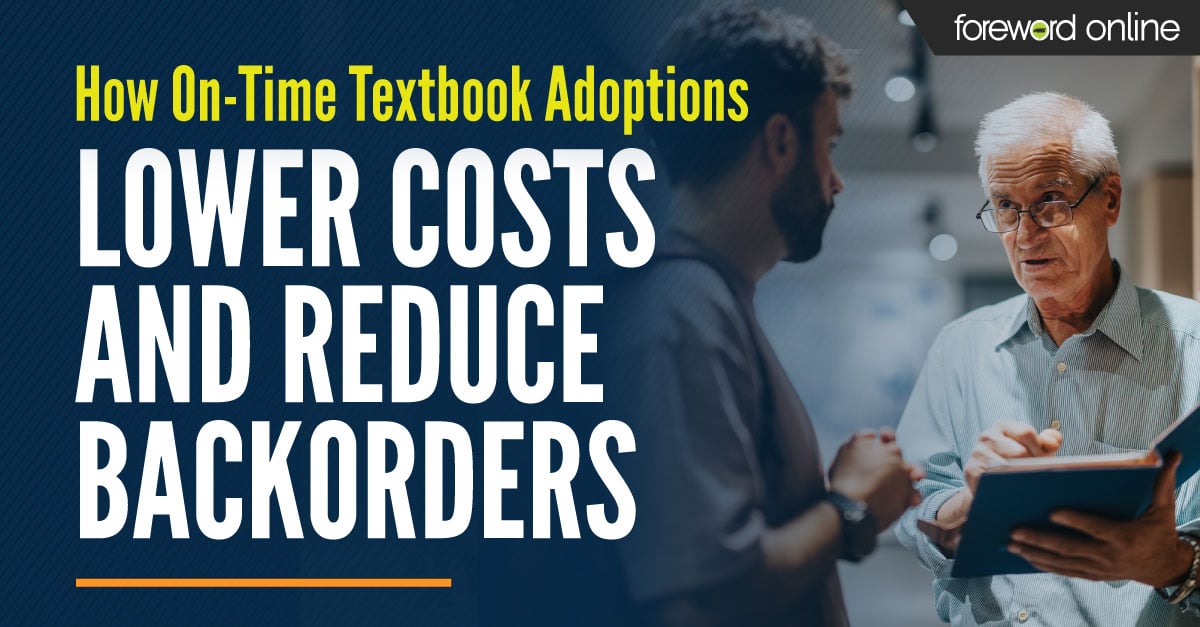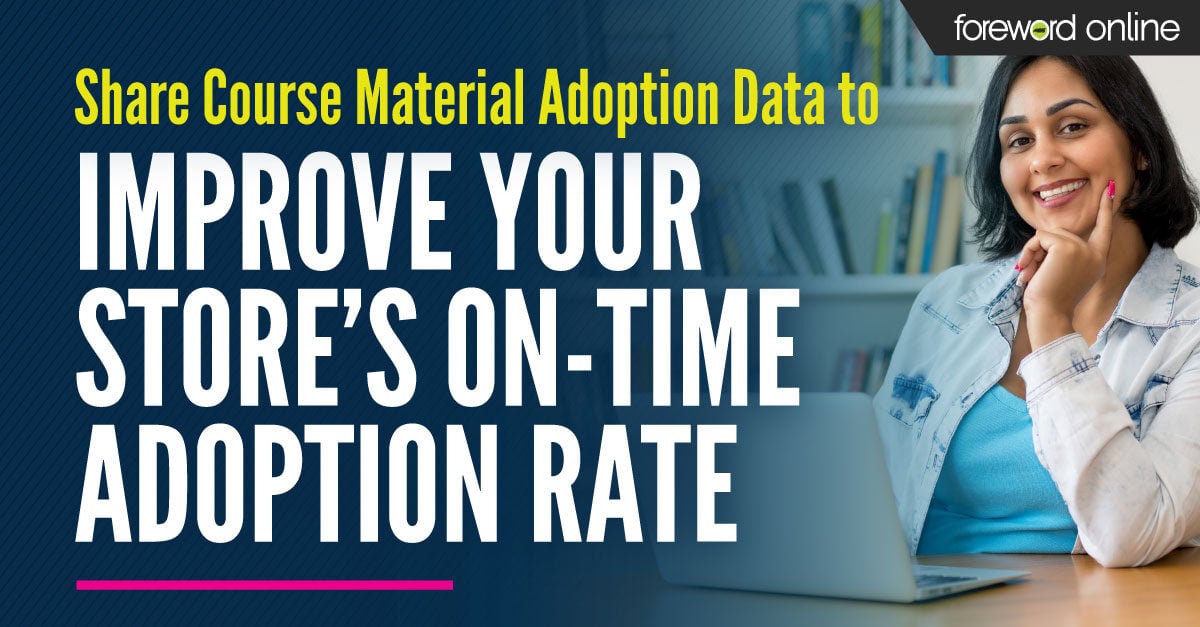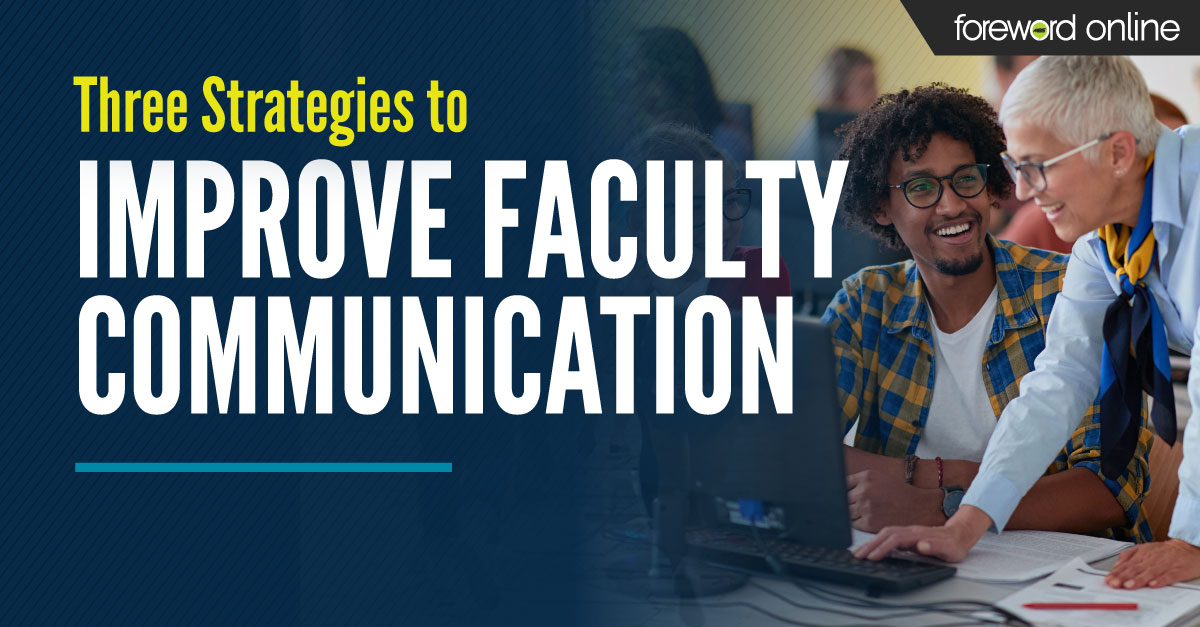With the increase in online learning, getting faculty adoptions has become an even bigger challenge for college stores. It’s also a critical part of the process for getting more low-cost course materials and providing students with cost-saving options. Many stores have had success by reaching out to campus administrators for help.
 Faculty have a lot going on and they get a lot of emails that require their time and input. Emails from the bookstore may not be seen as urgent or as important as other emails that demand their immediate attention, making it easy for things to be forgotten or missed. By working with deans and campus administrators, you can establish the sense of urgency needed to receive timely adoptions.
Faculty have a lot going on and they get a lot of emails that require their time and input. Emails from the bookstore may not be seen as urgent or as important as other emails that demand their immediate attention, making it easy for things to be forgotten or missed. By working with deans and campus administrators, you can establish the sense of urgency needed to receive timely adoptions.
Today, we’re going to look at the ways different college stores have succeeded in getting the assistance they needed.
Student transparency
One way to start conversations about faculty adoptions with administrators is through maintaining cost transparency with students. The cost of education can be a hot button issue for a lot of people. By letting students know what course materials will be required for classes before registration, then students can make an informed decision and see the costs up front.
The Utah State University Campus Store joined the HOEA compliance committee where rules were implemented to ensure student transparency.
“In 2010, a committee was formed for HOEA compliance. The campus store, the scheduling department, the provost and instructional services all had representatives serve on the committee,” Course Materials Manager Clarissa Peterson said. “ It was agreed that course materials are an essential part of learning. The committee’s interpretations of HEOA was that if students can’t see their course materials, they cannot register for the course. That means that faculty have to have their adoptions turned in before class registration opens. Otherwise, their course will not be included in registration.
“Two months before registration, we begin the faculty adoption process. Faculty members are given a deadline and sent an automatic email reminder every three days until their adoptions are turned in. Once the adoption deadline passes, a final email is sent to department heads from the Vice President of Scheduling,” Peterson said. “Courses that do not have adoptions will not be included in registration. The departments definitely want their classes to be offered. So, they work hard to make sure we get what we need. The usual percentage of on-time adoptions is about 94 percent. Class registration usually begins about two or three weeks after the adoption deadline. That gives us a little room in case someone is late.
“In addition to deadline adherence, departments also assume responsibility for last minute course material changes. The departments are responsible for paying for any costs related to changing materials that the store or students might have. So, for example, if a student were to go buy their book online and then the book for the course changes, the department is responsible for reimbursing the student the cost of the book,” Peterson said. “The Provost approved the principle and procedures that the committee came up with and they work well.”
Read more about how Utah State University Campus Store averages a 94% faculty adoption rate.
Help meet college affordability goals
Another way to start having meaningful conversations with deans and administrators is to talk about how the bookstore can work with them on their goals. Invite the administrators to a lunch or a meeting and be prepared to have a frank discussion with them about faculty adoption challenges and how it impacts the students and the school.
Chemeketa Community College Bookstore’s Director of the Bookstore and Auxiliary Services immediately saw there was an issue with how the store handled adoptions and set out to remedy it.
“I have been doing this job for almost seven years, but I didn’t come from a textbook background or the college bookstore industry. I was confused as to why adoptions weren’t done on time. We talked about the barriers and challenges associated with textbook adoptions. Once I had a good understanding of the problem, we invited the general education deans to lunch and sat down with them to talk about adoptions. We told them about the problem and why it would be advantageous to all us if we could figure out a way to get the adoptions done on time.
“The deans really took it upon themselves to solve the problem. They worked with our LEAN Development Team. I don’t know if every campus has a LEAN Development Team these days or not, but ours is pretty amazing. They took the problem apart with the academic work group on campus and flipped the system.
“Working with Bonnie Perry, my textbook coordinator, they created a standard list of course materials for the upcoming term. The list includes the standard materials that have been used in the past and there is another list with the instructors who might want to use a different book than they used before. If instructors want another book, they are given a deadline that deans help enforce so we do not get a lot of changes at the last minute. The deans basically created a master list of authorized textbooks. If faculty want to change what’s on the list, they are welcome to do that, but it has to be done within a set timeline. And because of that, we can start going forward with uploading our adoptions for the upcoming term after the faculty deadline. That’s how our adoptions are up to 99% seven weeks before the term starts.
“We really took the time to develop a really good rapport with the deans. They saw our genuine commitment to textbook affordability. We also started our textbook affordability group at that time to support the campus’ affordable learning initiative. The deans on the committee would lay out their goals, and I would say matter-of-factly that this was all fine, but none of it could really happen before we could fix the adoption problem. I explained that we couldn’t truly have affordability without on-time adoptions. And, it has proven to be true.” Director of the Bookstore and Auxiliary Services Meredith Schreiber said.
Read more about how Chemeketa Community College Bookstore’s efforts resulted in a 99.92% faculty adoption completion rate.
Be specific about what you need from them
Maybe a complete process overhaul isn’t necessary. Maybe your store just needs a small boost to help encourage the last group of late adopters to submit their selections. Administrators could still be your best bet at getting the response you need. Schedule a time to speak with deans or administrators from the departments that are notoriously late. Go over why adoptions are important, how the bookstore informs faculty and ask them for specific help like sending the final email message to tardy faculty members. Also, give the deans an opportunity to offer you suggestions on other ways to streamline this process.
Peninsula College Bookstore has had good luck with this approach. By getting the deans to send the final email to faculty, they can get a much better response and more adoptions in.
“Our biggest benefit for our last buyback was that we had most of our adoptions in. That let us buy fairly heavy from students. Typically, we source a decent amount of inventory, but because of COVID, I chose not to. I was able to use buyback more like I would for sourcing textbooks,” Peninsula College Director of Enterprise Services Camilla Rico said. “You can’t make educated choices without knowing what faculty will be using. We just can’t make those decisions. So, I worked with the deans to help me get adoptions in on time. We had a really large percentage in for fall before summer even started, which, for us, is huge.
“Getting instructor support is my best advice. Work with the deans and get as much support as you can because they have sway over faculty. If you send the email, it’s just another nagging email from the bookstore. However, when the dean sends it, that is your boss telling you that you need to do something. It makes a huge difference,” Rico said. “And for students, it’s important that they have all that information upfront. It’s always important, but right now, it is even more so. Students already have a lot of questions and so many processes have changed. It’s hard to find all the information. Knowing what books they will need for their courses so they can get them ordered just helps streamline the process for them. Essentially, it’s just better for the students.”
Read more about how Peninsula College Bookstore ensures early textbook adoptions.





